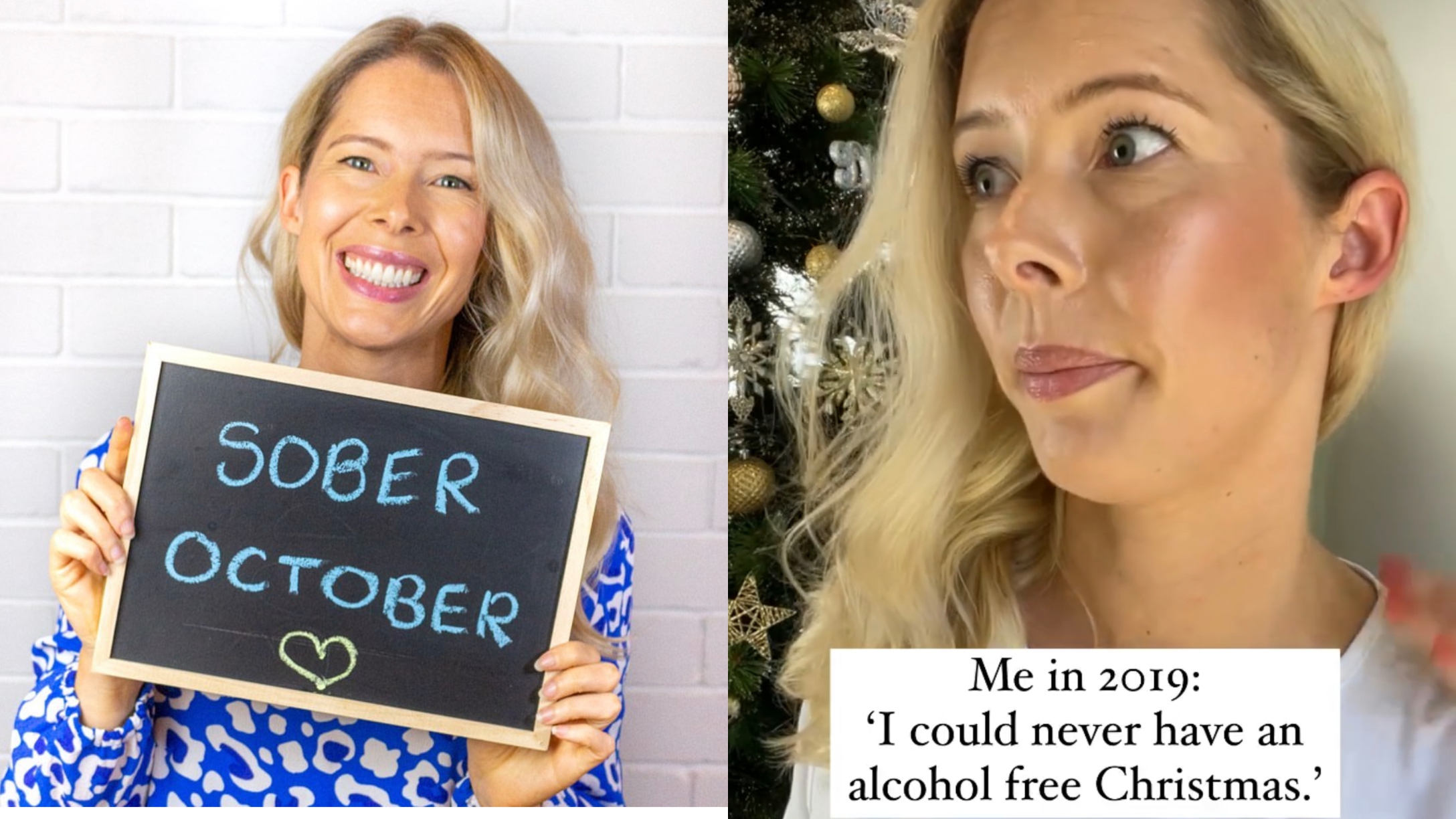
There are a lot of things that doctors don't recommend during pregnancy. That includes everything from drinking too much caffeine to eating lunchmeat and sushi. The end goal is a safe pregnancy and a healthy baby, but some of those guidelines have loopholes and work-arounds.
Alcohol consumption during pregnancy isn't one of them, and it's widely known to be dangerous. Even the smallest amount of alcohol during pregnancy can lead to a host of physical and developmental issues, according to the Centers for Disease Control and Prevention. One mom learned the hard way that no amount is safe.
Now a sober influencer, Natalie Battaglia didn't drink during her first pregnancy.
She was thrilled because she had tried for more than a year to get pregnant, she explained on the Knock-Off Drinks With a Difference podcast. So she avoided anything that would harm her baby, which included alcohol. Battaglia had a "very occasional half-glass of champagne."
Things were different with her second pregnancy, though.
When she became pregnant with her second child, Battaglia, who lives in Australia, allowed herself a bit more freedom. She would have a drink here and there.
The mom said her alcohol consumption made a difference — "definitely enough to feel the effects," noting that it was usually just one glass of wine, but that on at least one occasion she had two in a row.
Her baby appeared healthy at birth.
Battaglia gave birth to her son in 2017; at the time, everything seemed normal. It wasn't until he was about 6 months old that she realized that some of his behaviors were a little unusual.
When she sought help from doctors, they implied that it could be related to alcohol consumption during her pregnancy.
One of the first questions doctors asked her was about alcohol.
Battaglia said that even though she had consumed alcohol during her pregnancy, she was shocked by the question. She was so caught off guard that she lied.
"I was ashamed and I thought, 'Even if it was the alcohol, there's nothing I can do about it now anyway, so what's the point in telling the truth?'" she said on the podcast.
When the doctor consulted another pediatrician, they agreed that they thought Battaglia's son had cerebral palsy. "I was devastated," she said.
Battaglia took her son for intervention.
After seeing a third doctor, she began taking her son to a physical therapist every other week. She religiously worked with him at home, and now, he is developing normally. Doctors no longer consider him to have CP, but her guilt will always be there.
No amount of alcohol during pregnancy is OK.
According to the CDC, it is never OK to drink alcohol during pregnancy. There is always a risk for the developing fetus, no matter what pregnancy stage or the amount of alcohol consumed.
"Alcohol use in the first three months of pregnancy can cause the baby to have abnormal facial features. Growth and central nervous system problems (e.g., low birthweight, behavioral problems) can occur from alcohol use anytime during pregnancy. The baby's brain is developing throughout pregnancy and can be affected by exposure to alcohol at any time," the agency's website notes.
The CDC also states that it is never too late to stop drinking during pregnancy.
In the years since, Battaglia has changed her life.
Battaglia has been a nondrinker since 2020. She maintains the @themindfulmocktail Instagram account, where she has more than 62,000 followers, and posts "easy mocktails, alcohol-free drink recs & sober inspo," according to her bio.
"We will never know if it was the alcohol that caused my son's issues, but we will never know that it wasn't," Battaglia, told Insider in an email. "From personal experience, I can assure you that a glass of wine or two during pregnancy is not worth the 'what-if's.'"




